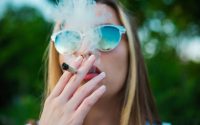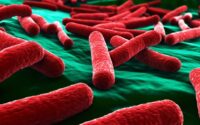LSD variant cures depression in mice without making them trip, study finds
An LSD-like drug could treat depression in humans without sending patients on a Magical Mystery Tour, according to a new scientific study.
As the use of hallucinogenic drugs for recreational and therapeutic purposes soared to new heights in the US, scientists discovered new variants that appeared to ease anxiety and depression in rodents without delivering mind-bending side effects, according to a report in the scientific journal Nature.
Scientists had culled the new drug from a library of 75 million molecules that share the unusual structures that affect serotonin release found in drugs like psilocybin, the primary ingredient in magic mushrooms, and lysergic acid diethylamide (LSD).
The researchers were not specifically looking for an antidepressant but soon realized they were on their way to a breakthrough, according to NPR.
Study author Dr. Bryan Roth, a professor of pharmacology at UNC Chapel Hill School of Medicine, recalled a fellow scientist asking, “‘What are we looking for here anyway?’ And I said, ‘Well, if nothing else, we’ll have the world’s greatest psychedelic drugs,’” he told the outlet.


As research continued, the team took its lead from other studies that showed psilocybin could rewire the human brain and stave off depression.
The team identified the two “best” and “most potent” properties from its library of molecules and gave them to mice, University of California pharmaceutical chemistry professor Brian Shoichet told the outlet.
“We found our compounds had essentially the same antidepressant activity as psychedelic drugs [but] they had no psychedelic drug-like actions at all,” Roth reportedly said.
Researchers gauged the mental health of a mouse by judging how resilient it is when facing adversity. For example, a depressed mouse would tend to give up quickly when dangled by its tail, but would continue to struggle if under the influence of antidepressants like ketamine or psilocybin, scientists reportedly said.

Prior observation of mice on LSD found that mice that are tripping twitch their noses. That symptom did not occur when the mice were given the new test drug.
Scientists were hopeful that human depression patients would have the same experience, with some tweaking of the molecules so they wouldn’t increase heart rate and raise blood pressure in the same way LSD does, according to the report.
“Society would like a molecule that you can get prescribed and just take and you don’t need a guided tour for your trip,” Shoichet reportedly said, referencing the rise of psychedelic retreats that provide medical supervision.
Doctors say such an advancement would be a huge breakthrough because the brain rewiring of psychedelics takes hold almost immediately and could last for a year of more, in contrast with slow-acting pharmaceutical antidepressants that need to be taken daily.
A previous breakthrough in the field led to the creation of a hallucination-free variant of ibogaine, a mind-altering drug which is derived from the bark of a tree native to Africa.
“It’s very encouraging to see multiple groups approach this problem in different ways and come up with very similar solutions,” University of California chemical neuroscientist David Olson, who led the ibogaine project, told the outlet.


